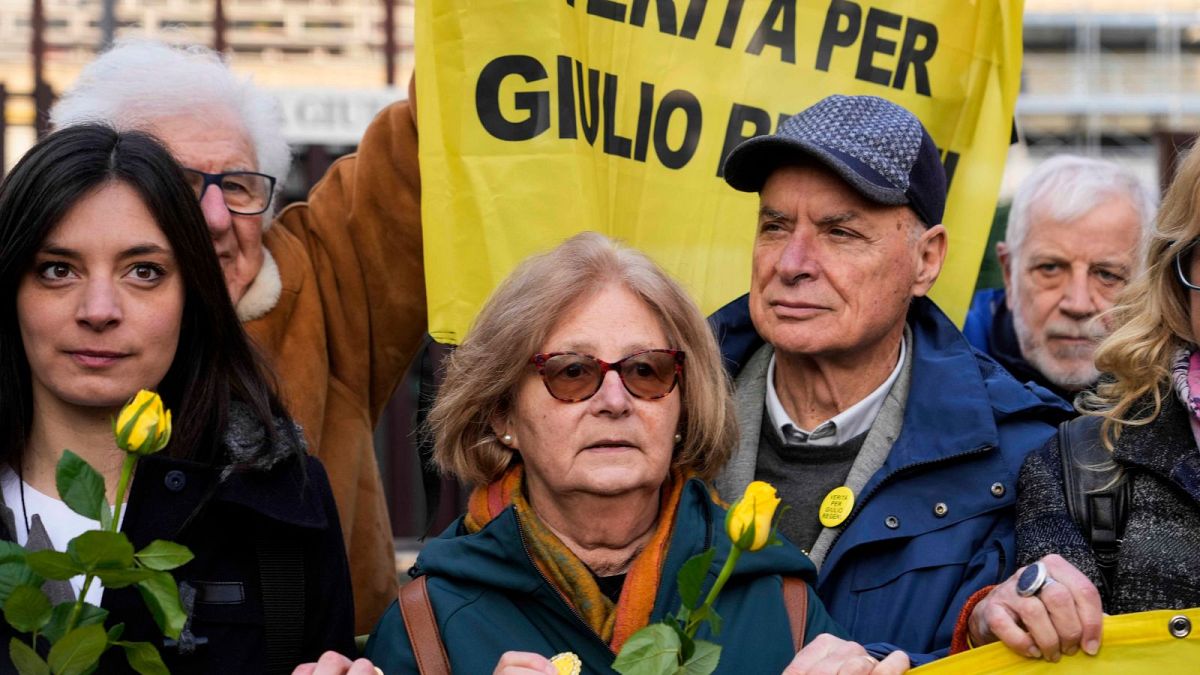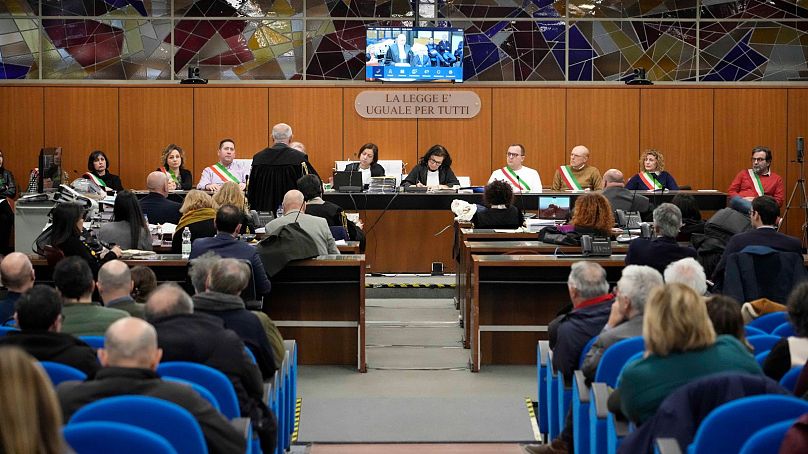Eight years after his death, no arrest has been made for the killing of Italian graduate Giulio Regeni. But the murdered student has hardly been forgotten in his home country, where a new trial has just begun.
In a fresh new trial opening on Tuesday, Italy is once again seeking justice for Italian graduate Giulio Regeni, who was abducted, tortured and killed in Cairo in 2016 after being mistakenly taken for a foreign spy.
Regeni, a PhD student at the University of Cambridge, was in Cairo researching Egypt’s independent trade unions – a hugely sensitive subject in the country, where the authoritarian government has repressed unofficial protest movements since 2013.
On 3 February 2016, nine days after his disappearance, the mutilated and half-naked body of the 28-year-old student was found in a ditch in the outskirts of the capital. His body showed signs of extreme torture – broken bones, stab wounds, cigarette burns, bruises.
The case has caused great tension between Italy and Egypt, and eight years later, the matter is far from resolved.
Following an investigation, Italian prosecutors named four Egyptian security officers as suspects in his killing: General Tariq Sabir, Colonels Athar Kamel and Uhsam Helmi, and Major Magdi Ibrahim Abdelal Sharif.
So far, Italian prosecutors have been unable to bring action against them, and in December 2020, all four suspects were cleared of responsibility in Regeni’s murder by Egypt’s public prosecutors. Yet Italy has refused to drop the case.
A 2021 trial in Italy against Regeni’s killers was thrown out of court the moment it opened because prosecutors had not been able to inform the four suspects of the procedures against them. But last September, the Italian Constitutional Court ruled that the case could go ahead even without the suspects present.
What happened
On 25 January 2016, Regeni headed out to meet some friends in Tahrir square, where 5 years earlier protests sparked against the then Egyptian president Hosni Mubarak. He likely never made it to the square, because, on that very same day, he disappeared.
One of the supervisors he was working with alerted authorities, but, for days, the student was simply nowhere to be found. His body was only found 9 days later, in a ditch between Cairo and Alexandria.
Egyptian President Abdel Fatah al-Sisi promised to help Regeni’s family to establish the truth of their son’s death – but that is not how events played out.
Italy and Egypt conducted separate investigations, reaching very different results. The Egyptian prosecutors first suggested that Regeni was killed in a road accident, then pointed the finger at a criminal gang whose members were subsequently killed by the police in a shootout. Italy refused these theories and accused Egyptian officials of misdirection.
Collaboration between Italian and Egyptian investigators appeared doomed from the start. In 2016, Italian officers sent to Cairo were denied full cooperation with the Egyptian team. They were given CCTV footage from the day Regeni disappeared, but it contained unexplained gaps.
After they pointed the finger at Egypt’s national security service, the situation became even more difficult. Italian MPs have accused the Egyptian government of being “openly hostile” to attempts to try the four suspects in court.
For a year and a half, normal diplomatic relations between the two countries were interrupted, with the Italian ambassador in Egypt being called back to Rome.
The theory reconstructed by Italian prosecutors since then is that Regeni was under surveillance when he was abducted by Egyptian security forces, probably because of his research and left-wing associations, likely because he was mistaken for a spy.
The Egyptian government admitted in 2016 to having put the student under surveillance.
Justice delayed
The new trial opened on Tuesday in Rome, and has been adjourned to 18 March. But why did it take so long for the country to prosecute the student’s killer if investigators had named the suspects already in 2018?
The reason is mainly political. The alleged involvement of national security officers means the murder could potentially be traced back to Egypt’s government al-Sisi.
The president is among the politicians who have been called to testify at the trial in Rome, together with Italy's former prime minister Matteo Renzi and others.
“We’ve been waiting for this moment for eight years,” the lawyer representing Regeni’s parents, Alessandra Ballerini, said on Tuesday, as reported by local media.

